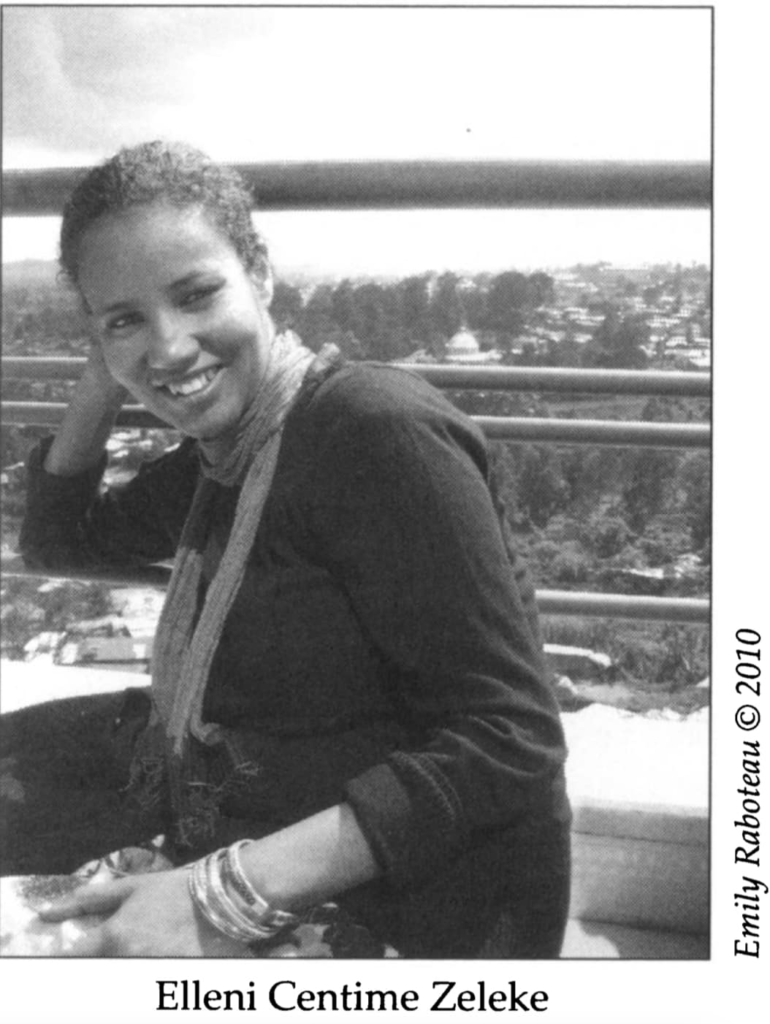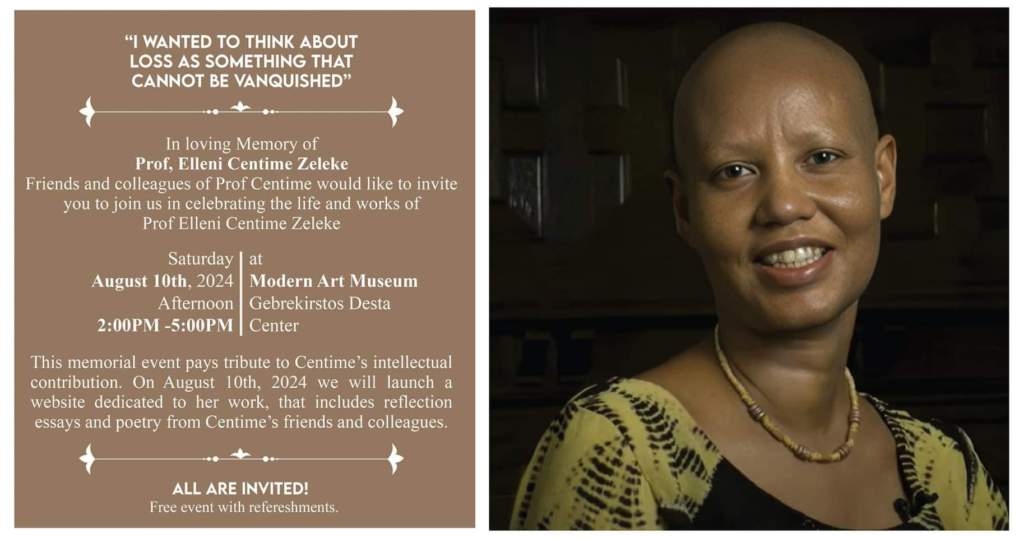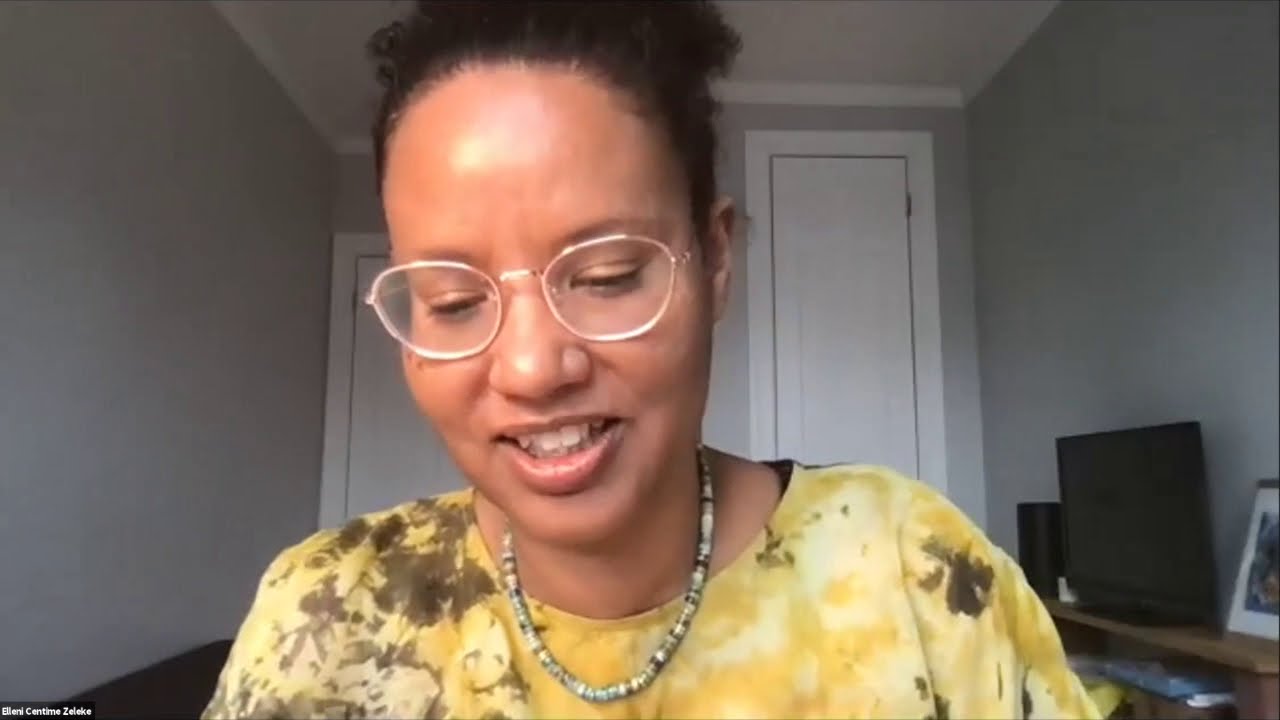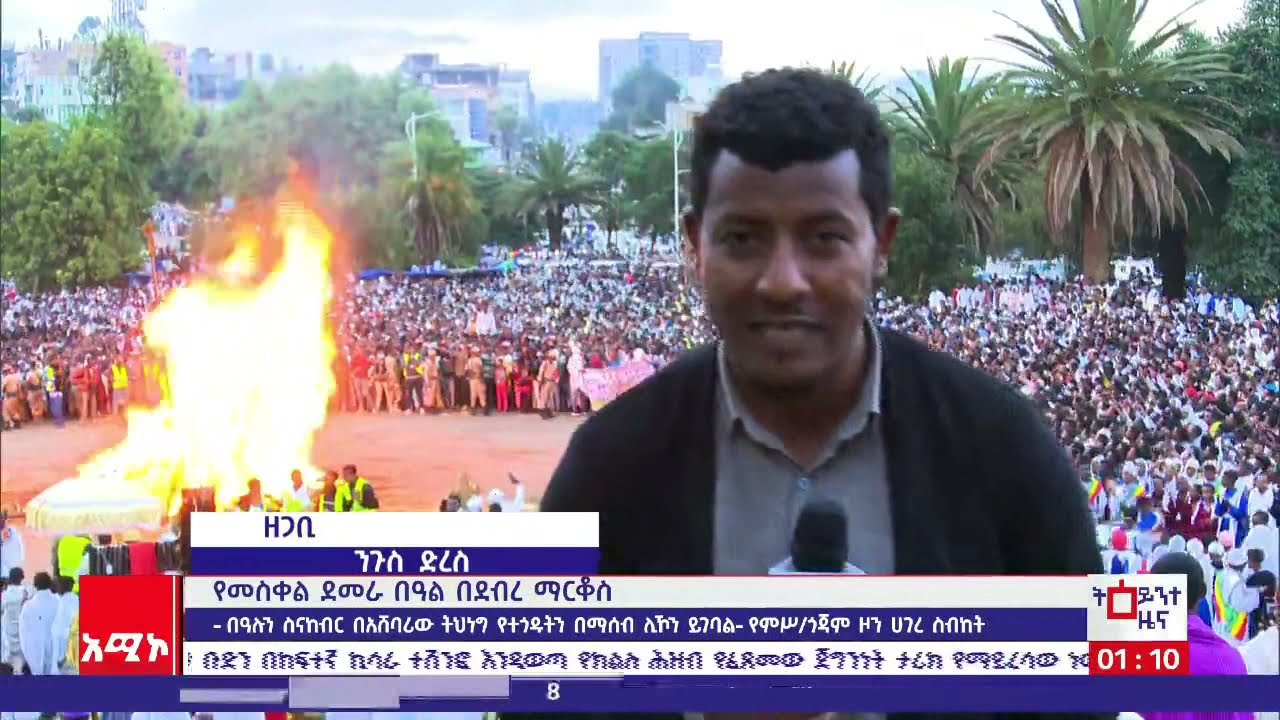Getachew Assefa
August 9, 2024


The human experience is often defined by a relentless struggle against violence and domination—forces that shape our world in both visible and hidden ways. In the midst of such struggles, certain voices rise above the fray, not just to resist, but to illuminate a path forward with clarity, insight, and a profound sense of understanding. One such voice was that of Elleni Centime Zeleke, whose work became a beacon of hope and understanding during one of the most challenging periods of my life—the genocidal war on Tigray.
My encounter with Elleni’s work wasn’t driven by academic curiosity or professional obligation. Rather, it was a deeply personal quest for meaning amidst the chaos and despair of the war. As the war unfolded, I struggled to comprehend the motives of those who supported it, including longtime friends. Truth seemed elusive, buried under layers of propaganda and denial. In this disorienting landscape, I discovered Elleni’s Ethiopia In Theory. This book and her other works provided not only a lens through which to view the war but also a framework for understanding the broader forces of violence and domination that shape such crises. Her writings offered clarity where there was confusion and moral direction where there was despair.
Elleni’s scholarship is marked by a critical engagement with the questions of violence, power, and historical memory. Her analysis resonated with me on a deeply personal level, articulating the anger, frustration, and helplessness that the war had stirred within me. She examined how violence is rationalized and normalized by those in power, and how marginalized communities often bear the brunt of such violence. More importantly, her emphasis on the role of historical memory in understanding contemporary conflicts challenged me to think more critically about the narratives I encountered and the stories I told myself about the war.
What struck me most about Elleni’s work was her ability to blend rigorous scholarship with profound empathy and moral urgency. She did not treat the study of violence and domination as an abstract intellectual exercise but as a deeply human issue with real-world implications for those caught in its grip. This approach is evident in her writings and public engagements, where she combines theoretical analysis with a deep understanding of the lived experiences of those affected by violence. Her words, like in her work on the student movement, on Addis Ababa, the revolution, are centered on themes of love, memory, peace, freedom, and accountability. In ‘My People’, she said, “it is true that through loving conduct, love becomes a practice, not an abstract entity that one constantly craves after”.
Elleni was committed to challenging dominant narratives and amplifying marginalized voices. She was unafraid to question accepted wisdom and expose how power operates to silence dissent and maintain systems of domination. This was particularly evident in her critiques of how historical narratives are constructed and used to justify contemporary violence and oppression.
Understanding and narrating anti-violence and anti-domination is complex. Violence is not always overt or easily identifiable; it can be structural, systemic, and insidious, woven into the fabric of society in ways that make it difficult to see and even harder to dismantle. Domination, similarly, operates through subtle mechanisms of control and coercion that are normalized and accepted as part of the status quo. Measuring the impact of anti-violence and anti-domination efforts, such as shifts in consciousness, changes in social relationships, and the emergence of new forms of solidarity and resistance, is challenging. Elleni’s work is crucial in understanding the true impact of efforts to challenge violence and domination.
The narratives that dominate public discourse often serve the interests of the powerful, simplifying or distorting the complex realities of violence and resistance. Crafting narratives that accurately reflect these realities requires not only a deep understanding of the issues at hand but also a commitment to ethical storytelling that respects the voices and experiences of those most affected by violence and domination. Elleni excelled at this, offering insights that not only deepened my understanding of these forces but also inspired me to think more critically about my role in resisting them.
Her work serves as a reminder that the struggle against violence and domination is not just an intellectual pursuit but a deeply moral one, rooted in a commitment to justice, empathy, and the dignity of all people. Reflecting on Elleni and her impact, I am reminded of the importance of seeking out and amplifying voices like hers—voices that challenge us to see the world in new ways, to question the status quo, and to commit ourselves to the difficult but necessary work of building a more just and humane society.
On a personal level, after discovering her work and reaching out to introduce myself, she quickly became my go-to source for materials and connections. She never hesitated to link me with valuable scholarly and archival resources, as well as remarkable individuals like herself. As an engineer with little exposure to the social sciences, I was looking forward to years of connection and learning. When she shared news of her cancer treatments in what would be our final communication, I had no idea how soon I would lose the opportunity to continue learning from her.
Elleni believed that the future is always shaped by the past and the ways we interpret it. She advocated for an education system that goes beyond basic literacy and numeracy, emphasizing critical thinking and democratic values from the earliest stages of learning. Her reflections on the concept of Tizita, translated as nostalgia or memory, encapsulate her unique ability to intertwine form and content. She described it as a genre of song, a musical scale, and an attempt to capture lost love—a way to hold onto memory through both the form and content of the song.
Elleni’s work and thoughts are the containers in which we will hold onto our memory of her love for the marginalized. Her insights will continue to guide me and many others like me through the darkness of violence and domination, inspiring us to resist these forces and to work toward a more just world.
Go in power, comrade!


